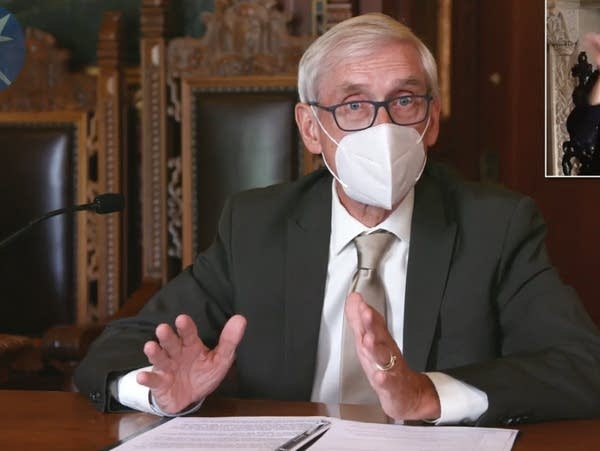Wisconsin Supreme Court says governor can't limit capacity

Go Deeper.
Create an account or log in to save stories.
Like this?
Thanks for liking this story! We have added it to a list of your favorite stories.
The Wisconsin Supreme Court on Wednesday ruled that Gov. Tony Evers' administration does not have the authority to issue capacity limits on bars, restaurants and other businesses without approval of the Legislature, a ruling that comes two weeks after the conservative-controlled court struck down the state's mask mandate.
The Supreme Court also ruled last year in a similar case that the Democratic governor needed legislative approval for an emergency declaration that shut down businesses early in the coronavirus pandemic.
There has not been a statewide capacity limit restriction in place since October. That order limited the size of indoor public gatherings to 25 percent of a building or room's occupancy or 10 people in places that don't have an occupancy limit. The on-again, off-again order was blocked by a state appeals court that month.
The Supreme Court ruled 4-3 on Wednesday that the order issued by Evers' Department of Health Services meets the definition of a rule, which by law must go through the Republican-controlled Legislature. The court's four conservative justices ruled against Evers, while three liberals dissented.
Turn Up Your Support
MPR News helps you turn down the noise and build shared understanding. Turn up your support for this public resource and keep trusted journalism accessible to all.
Justice Ann Walsh Bradley, writing for the dissent, said the emergency order did not meet the definition of a rule and the Evers' administration did not have to "go through the cumbersome rulemaking process."
"At a time when public health experts are imploring pandemic-weary Wisconsinites to stay vigilant, a faulty statutory analysis once again leads this court to undermine public health measures," Bradley wrote.
The case was brought by the Mix-Up Bar in Amery and Pro-Life Wisconsin. They argued that the court's 2020 ruling blocking the governor's "safer at home" order set a precedent that requires such moves to be approved by the Legislature.
Assistant Attorney General Colin Hector, representing the Evers administration, said during oral arguments in December that ordering capacity limits was allowed under existing powers of the Health Department to address public health emergencies, as well as the court's previous decision.
The attorney for the bar and the anti-abortion rights group said the state was trying to get around both the Legislature and the court's precedent. He also argued that the case was moot, given that the order had expired. Evers' administration brought it to clarify whether it could issue future orders.
Spokespeople for Evers and the Department of Justice did not immediately return messages seeking comment.
Even without statewide limits on capacity, there are local ordinances in effect in some places putting a cap on how many people can gather indoors. However, those have been loosening as more people get vaccinated across the state.
While vaccinations are on the rise, so too are COVID-19 cases. The seven-day average of cases, which was fewer than 400 in mid-March, has doubled in Wisconsin over the past month and stood at 794 as of Tuesday.


